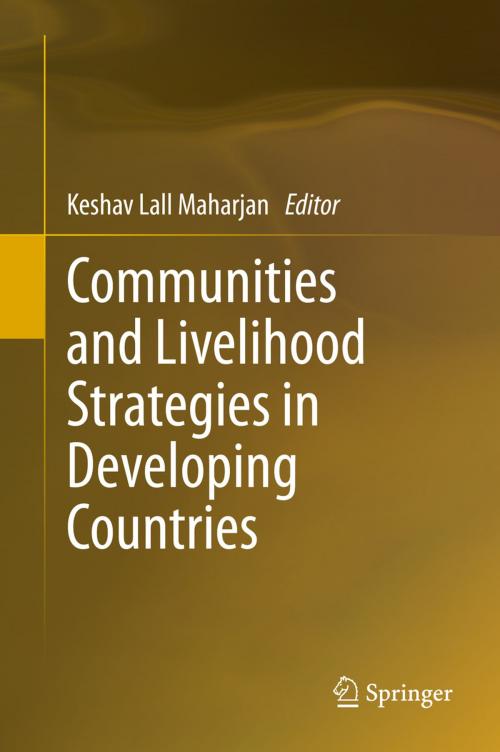Communities and Livelihood Strategies in Developing Countries
Nonfiction, Social & Cultural Studies, Political Science, Politics, City Planning & Urban Development, Science & Nature, Science, Earth Sciences, Nature| Author: | ISBN: | 9784431547747 | |
| Publisher: | Springer Japan | Publication: | May 29, 2014 |
| Imprint: | Springer | Language: | English |
| Author: | |
| ISBN: | 9784431547747 |
| Publisher: | Springer Japan |
| Publication: | May 29, 2014 |
| Imprint: | Springer |
| Language: | English |
Sustainability of rural communities is threatened by a plethora of factors including climate change and disasters which interact in an intricate manner in making rural people vulnerable and poor. This book is the output of empirical research on communities and livelihood strategies in developing countries. It reveals how rural communities are functioning and earning their livelihoods by making the best use of the resources, local/internal or external/new and the combination of the two to counteract the various challenges they face, with the ultimate goal of becoming resilient to local or global shocks and sustaining that resilience. Local governance is identified as crucial in ensuring sustainable livelihoods as it ensures healthy collaboration between communities, on the one hand and civil society and those communities, on the other hand, in promoting self-sustaining development trajectories. Similarly, the role of social capital is not ignored as it brings in community drive and a sense of purpose, direction and solidarity among community members which facilitates problem solving in periods of crises and disasters.
Sustainability of rural communities is threatened by a plethora of factors including climate change and disasters which interact in an intricate manner in making rural people vulnerable and poor. This book is the output of empirical research on communities and livelihood strategies in developing countries. It reveals how rural communities are functioning and earning their livelihoods by making the best use of the resources, local/internal or external/new and the combination of the two to counteract the various challenges they face, with the ultimate goal of becoming resilient to local or global shocks and sustaining that resilience. Local governance is identified as crucial in ensuring sustainable livelihoods as it ensures healthy collaboration between communities, on the one hand and civil society and those communities, on the other hand, in promoting self-sustaining development trajectories. Similarly, the role of social capital is not ignored as it brings in community drive and a sense of purpose, direction and solidarity among community members which facilitates problem solving in periods of crises and disasters.















